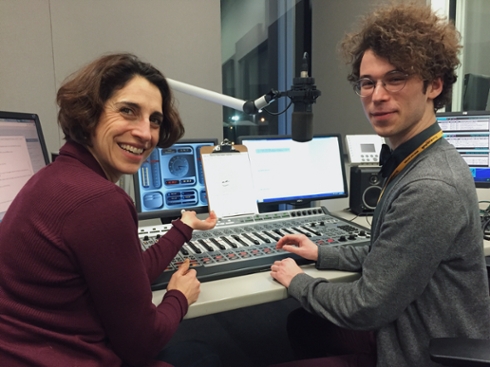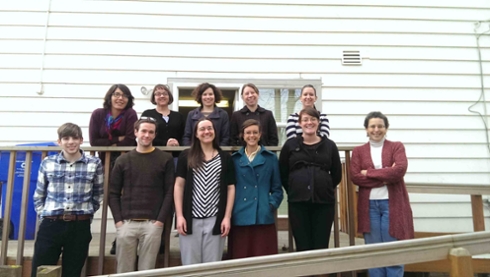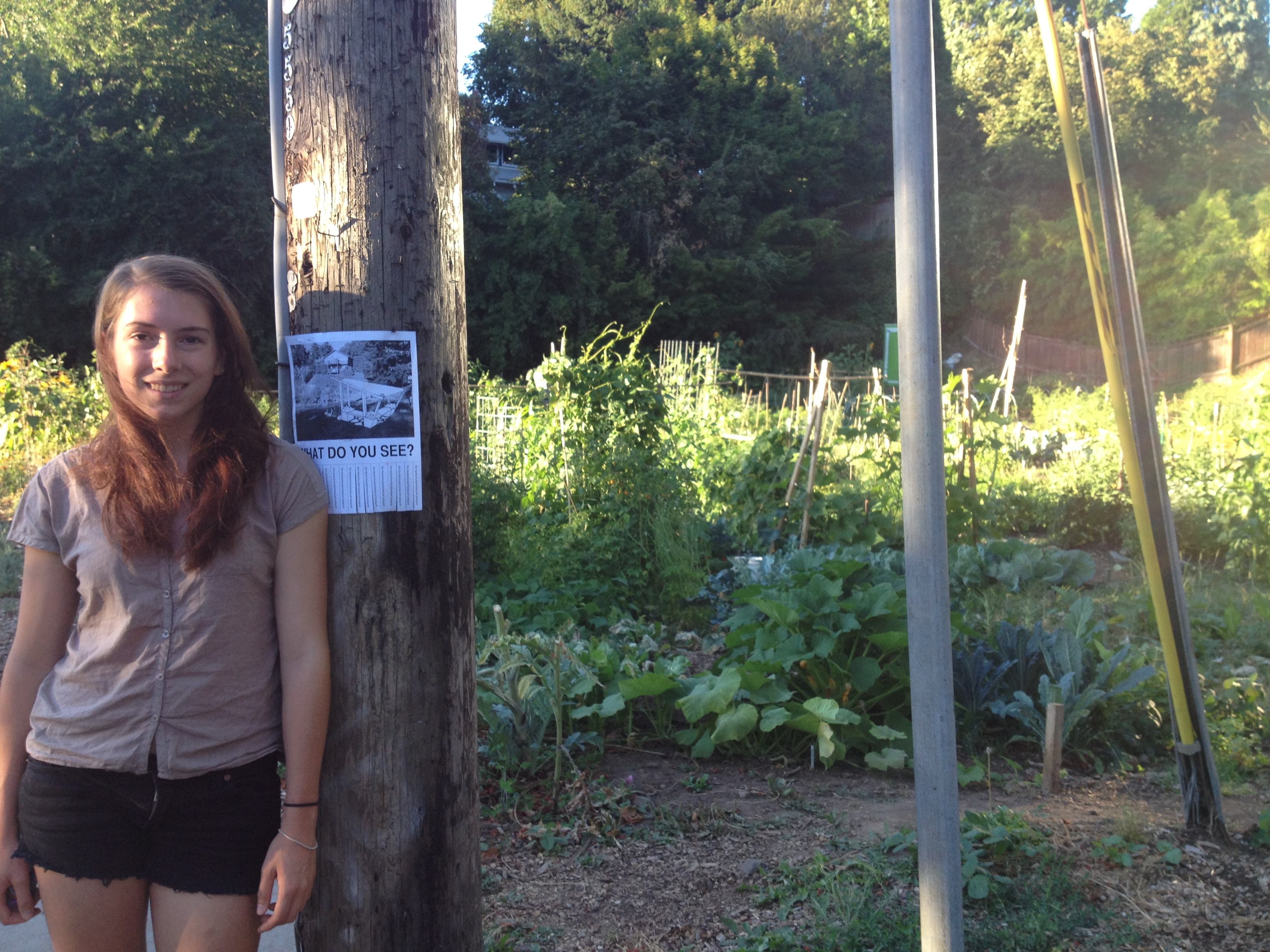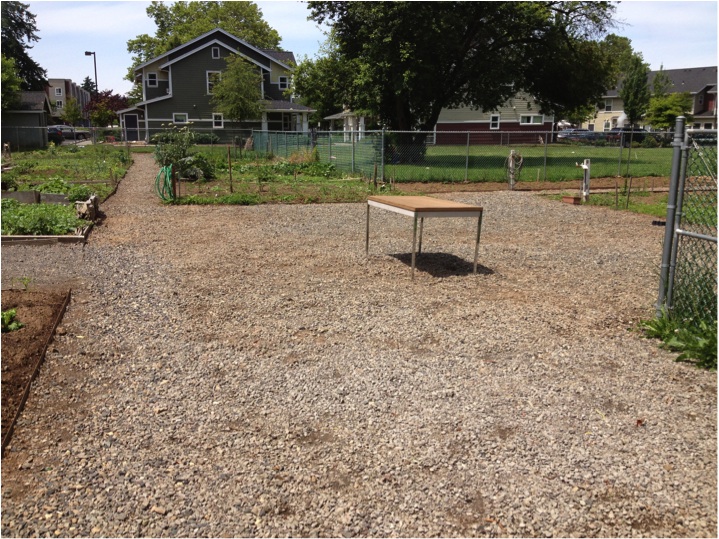Tags
"local"
Learning How To Learn: Northwest Woodworking Studio, Jacob Hayman, Winter Shadow 2016

Even though I wasn’t sure what to expect, I had been looking forward to my shadow at the Northwest Woodworking Studio all winter break. I did some research on the studio, and found some YouTube videos of Gary Rogowski, the Reedie English major turned expert woodworker who was to guide me and Emily (a fellow Reed student and new friend) for the week. I soon realized I wouldn’t learn much about woodworking on the internet.
Entering the studio didn’t change my feelings of total ignorance. Emily and I talked with Gary briefly about his nonlinear path to becoming a premier woodworker and teacher, and we quickly got started making dovetail joints. Gary gave a demonstration and explained the mechanics of the tools first, but he didn’t want us to learn by listening. We had saws and chisels in our hands within minutes of first entering the studio. We hit the ground running, and the week didn’t slow down.
After going to Gary’s house and grabbing some lumber, Emily and I were assigned to construct a door for the studio office. Gary gave us an idea of what he wanted, but he left us to figure it out for the most part. We measured, cut the particleboard, made mistakes, and measured more. We had to frequently ask for help and guidance, but we eventually got it installed. It wasn’t the most attractive door, but it was a fun project and (hopefully) Gary won’t have to replace it any time soon.
Continue reading Learning How To Learn: Northwest Woodworking Studio, Jacob Hayman, Winter Shadow 2016
St. Louis Public Radio: Caleb Codding, Winter Shadow 2016

Shula and Caleb working the sound board in the Control Room
Upon my return to Reed at the start of this semester, I met up with a friend of mine who had just returned from studying abroad. Amidst the excitement of being in the same country again and the desire to know as much as I could about all that she had experienced, I naïvely asked her, “How was it?”
“I could never describe everything that happened accurately,” she responded, “so much took place during my time away that it would takes at least as long for me to relate it all to you.”
Having just left my winter shadow with Shula Neuman and the newsroom at Saint Louis Public Radio, this answer resonated with me. It described exactly what I had felt. Because in the three all-too-short weeks I spent at the station, the team there exceeded every expectation I could have brought with me. But how can I adequately encapsulate that in a short blog post? How can I do justice to every minute of every day, whether I spent it hopping around press conferences with Missouri’s governor, performing investigative journalism about the merits of Stan Kroenke’s proposal to move the Rams back to Los Angeles, or producing interviews with some of the most determined advocates for progress in race relations I have ever met?
Continue reading St. Louis Public Radio: Caleb Codding, Winter Shadow 2016
Reed Winter Externship Reflections 14: Number twenty-five, Saturday Academy, Jeremy Cosel

Over my winter break, I went to visit the Saturday Academy administrative office located on the University of Portland's campus, and it was quite fun! I met some outstanding individuals who work not just for a living, but in order to provide quality academic programs for kids all across Portland and the greater Oregon area. That's the benefit of being a non-profit: you do work that is relevant to your interests, but also participating in a group that makes quite a meaningful impact on the community. During my weeklong visit, I helped staff revise internship descriptions provided by several dozen major companies across Portland, a part of Saturday Academy's Apprenticeships in Science and Engineering (ASE) program. Thinking about how to best incorporate a diversity of high school students regardless of their gender or socioeconomic status is something I have never considered, and was a thoughtful challenge for me. With an interest in Technology and Education, I learned about all the hard work that goes into organizing the hundreds of educational opportunities Saturday Academy provides, and was proud to assist with tasks in the background in order to provide a great experience for the families signed up with Saturday Academy this year.
Continue reading Reed Winter Externship Reflections 14: Number twenty-five, Saturday Academy, Jeremy Cosel
Humanitarian Design 2: Empowering Portland Through Community Oriented Architecture, Presidents Summer Fellowship

At some point during the past few weeks, all three tracks of my summer project picked up simultaneously, and my days have been a whirlwind ever since. As I write this post, I can however reflect upon one aspect of my summer project that recently wrapped up.
Today, I attended the last meeting of my five-week architecture course at PSU. A very basic introduction, the course touched upon a variety of subjects that shape architectural theory and practice. Lectures, videos, and discussions covered topics ranging from the roles of fashion, technology, and consumerism in building design, to deeper questions regarding how design generates and communicates meaning. The course—though not the technical education I had hoped for—presented an intriguing and occasionally disheartening window into the challenging, complex, and struggling field that is contemporary architecture.
To say that my professor is disillusioned with current architectural practice would be an understatement. Because my professor believes that architecture has lost sight of its fundamental values, he challenged my classmates and I to practice deliberate and ethical architecture. In light of everything, good and bad, that I learned about architecture, my desire to pursue a career in the field remains intact. Now, I feel better equipped to attempt a postgraduate degree, and no matter where I end up, to make sure that I keep the fundamentals of architecture close at hand.
Continue reading Humanitarian Design 2: Empowering Portland Through Community Oriented Architecture, Presidents Summer Fellowship
Humanitarian Design: Empowering Portland through Community-Oriented Architecture, Presidents Summer Fellowship
Halfway through my freshman year at Reed, I decided, after much deliberation, to major in studio art. My initial reluctance stemmed from a fear of the impractical and individualistic nature of an arts-oriented career, which I believed would limit my ability to make a tangible difference in the lives of others. That is, until the moment I seriously reconsidered my lifelong interest in architecture. Suddenly, years spent meticulously constructing houses in The Sims and wandering unknown neighborhoods ogling Craftsman bungalows became the solution to my dilemma. I realized that, as an architect, I can utilize my artistic skill and appreciation of the built environment to effect meaningful change in the world. Post-Reed, I plan to complete a masters program in architecture and embark upon a career in humanitarian design. For the moment, I am trying to gain the experience and knowledge necessary to facilitate my vision.

